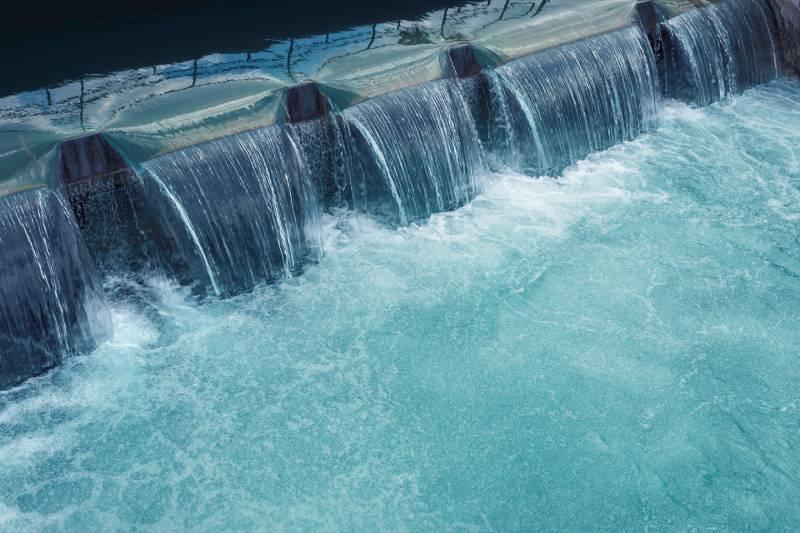
Student-Faculty Research Evaluates Sustainable Impact of International Hydroelectric Project
Dams may provide an inexpensive source of renewable energy, but their construction comes at a cost: disrupting natural habitats, releasing greenhouse gases, and displacing communities. Allegheny College students took an active role in the international community by assessing a hydroelectric dam’s potential impact in the Republic of Georgia.
For over two years, stakeholders in the country have debated a proposed dam. In fall 2021, an Allegheny environmental science & sustainability research methods class considered questions with scholars at the Ilia State University Institute of Earth Sciences in Tbilisi, Georgia. Students were most concerned with the dam’s impact on climate, energy, local development, and sustainability.
Assistant Professor of Environmental Science and Sustainability Jesse Swann-Quinn has spent a decade researching the carbon-dependent Republic of Georgia. He, along with Visiting Assistant Professor Lee Demi, saw the need to emphasize the vital role of the global environment to students in the class.
“Everything is connected. When you begin to study environmental issues in an international context, students start connecting the dots,” says Swann-Quinn. “Understanding the complexity can’t come by being told. You have to see it.”
Swann-Quinn points out that learning about another country’s issues could lead to local solutions.
“The issues, while very different, in The Republic of Georgia are not wholly different from the same tensions we are experiencing here in the United States, in Northwest Pennsylvania,” says Swann-Quinn. “Thinking about those questions in a different context allows us to step outside our presumptions about the world and get a perspective we can apply to our communities we would never have imagined before.”
Students even had the chance to speak via video with two Georgian activists who protested the dam. The call allowed the class to learn about the proposed dam project from their direct experience and ask questions to gain a local’s perspective. Currently, the dam proposal has been canceled.
The opportunity not only taught the class how to conduct research, but it began to show how data could influence political and social change.
“I’d like to work on another project like this that impacts the international community,” says sophomore Allison Riley. “The Republic of Georgia was a place I had never really thought of before, so this project allowed me to learn a lot.”
Visit the Environmental Science & Sustainability Department website to learn more about student-faculty research opportunities.